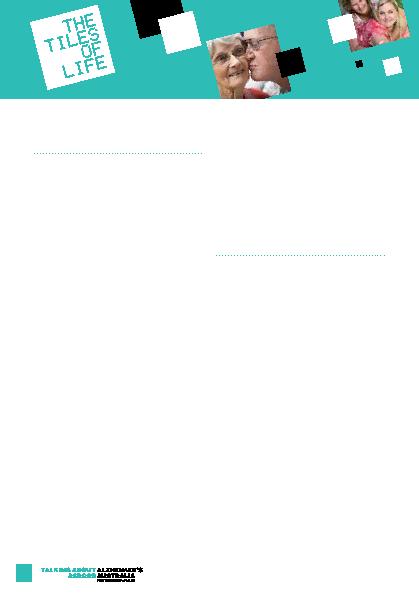
FOR quality dEmENtia CaRE
Dementia Collaborative Research Centre -
Assessment and Better Care (DCRC-ABC),
The University of New South Wales
(DSEG) Program was established in 2012 with
funding from Ageing, Disability and Home
Care, Department of Family and Community
Services NSW. The Program aimed to build
evidence for quality dementia care by engaging
health and community service providers
to undertake small research evaluations of
dementia services. Secondly, to build research
capacity within the health and community
service sector. Aged care research capacity
building initiatives targeting academics and
primary care clinicians have failed to realise
the potential of and wealth of knowledge
entrenched in service providers.
process resulted in 11 grants being awarded
to a diverse range of services across NSW.
These include evaluations of the impact
of carer education and case management
on carer burden and Quality of Life (QOL),
unique needs of people with dementia and
their carers from Culturally and Linguistically
Diverse (CALD) backgrounds, people living
with HIV and dementia, flexible respite in
rural and remote areas, the effect of memory
assessment programs on admission to hospital
and residential care, policy related research and
the impact of social programs on burden, QOL
and relationships.
research ideas, gain ethics approval, collect
and analyse results. While having excellent
clinical skills, preliminary findings indicate the
importance of research support for candidates
for success of projects.
establishing a potentially generalisable model
for research capacity building. It is anticipated
that results from these projects may inform
future service planning and best practice
across dementia services.
garden believed to be the first of its kind in
Australia has been established at Basin View
Masonic Village. The garden operates through
symbiotic relationships between yabbies, fish
and plants. Three different methods soil,
water and expanded clay are used to grow
aquaponically. Support from researchers at
the University of Wollongong and University
of Canberra has resulted in the development
of partnerships between the Village and these
institutions. From the outset the garden and its
design has been resident driven.
interaction between hostel residents, self care
residents, staff and the wider community.
Through this community engagement
there has been increased opportunities
to bring young people into the residents
lives. The garden has provides participants
with the opportunity to engage in different,
constructive, productive and therapeutic
recreational and social outdoor activities.